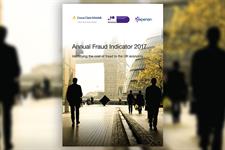This year’s National Risk Assessment of Money Laundering and Terrorist Financing says little use of charity funds to finance terrorist activity has happened
The risk of charities being used to fund terrorism has been downgraded from medium-high to low, according to a risk assessment carried out by the Treasury and the Home Office.
The National Risk Assessment of Money Laundering and Terrorist Financing 2017, published yesterday afternoon, says comparatively little terrorist financing is known to have happened given the size of the charity sector. It praises the Charity Commission’s work in this area.
But it warns that some charities, particularly those working abroad, are still vulnerable to this kind of abuse, and says the problem could intensify if banks continue to withdraw services from charities that operate in high-risk areas.
The last National Risk Assessment was published in 2015 and estimated the risk of terrorist financing using charities to be medium-high.
But the latest report deems the risk to be low, saying: “While the risks in the sector are unchanged, government and law enforcement agencies have conducted significant work since 2015 to increase understanding of the sector and the risks that it faces around terrorist financing.
“In comparison to the overall size of the UK charity sector, the amount of known abuse for terrorist financing is very low.”
The document says it is unlikely any charities had been set up specifically to finance terrorism.
But it warns that the 13,000 to 16,000 UK charities that operate internationally face “significantly higher risks”, particularly those operating in areas such as Syria and Iraq.
The 30 per cent of these charities with annual incomes of less than £10,000 are especially vulnerable to abuse because they are less likely to be receiving professional advice and could make honest mistakes or adopt poor practices that put them at risk, the report says.
Where charities have been linked to financing terrorism, the report says, “a significant proportion” have been legitimate charities that have fallen victim to internal abuse by employees, volunteers or trustees, or they have been looted in the country in which they operate.
A number of aid organisations have had their bank accounts frozen or closed by banks in recent years because of concerns about operating in high-risk areas.
The report acknowledges this and warns: “If this trend persists, de-risking may have the effect of pushing charities out of more intensely regulated areas of activity and into higher risk ways of working, such as transacting through physical cash or unregulated money service businesses, thereby increasing the risks in the sector.”
In the UK, the charities most likely to be at risk are those operating in London, the Midlands and north-west England, according to the report.
The report says the Charity Commission’s outreach programme focusing on charities identified as high-risk has been effective and, with the commission’s guidance and regulatory alerts, was likely to have contributed to reducing the risk of abuse from within charities.
Michelle Russell, director of investigations, monitoring and enforcement at the commission, welcomed the report.
In a statement, she said: “It is essential that those charities that are at greater risk take steps to protect themselves so that charitable funds are not abused.
“Any trace of terrorist financing within the sector corrodes public confidence in charities and cannot be tolerated. One case is one too many, which is why we continue to work proactively with the subsection of the sector that remains at high risk.”
She urged charities to review the compliance resources available in the commission’s website and to ensured they had strong financial, due-diligence and monitoring controls in place to prevent terrorist exploitation.





